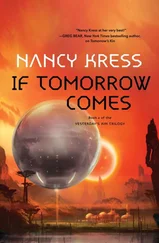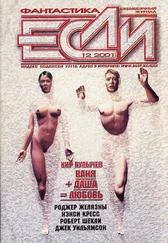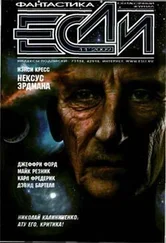The possibility shimmered and shifted in her mind.
Colin plunged on, “So Toni Steffens is spending all her time in the lab since she woke up, and the kids are learning to read faster, and my grandmother is spinning theories about evolutionary biology. And you’re being Jane, focused on people.”
He was alight with clear, bright colors, entranced with his idea, and in love with her. Jane saw him, all the way through. She felt dizzy, even though she was lying on a pallet with tubes stuck in her. And then, behind Colin, standing in the doorway, she saw his brother.
“Jane,” he said, coming into the curtained cubicle. “Colin. How are you feeling, Jane? Did you just wake up?”
“Yes,” Jane said. She saw Jason Jenner, too. Every line of him, every shape he made in her mind, was tense and jagged. His face looked older than Colin’s by at least a decade, even though she knew they were only a Terran year apart in age. This was a man carrying huge burdens—in her mind they were gray harsh shapes of enormous density—and buckling under them. No, not buckling—not yet. But add a little more, and he might. Or not. In Jane he called forth pity, along with a desire to not add to his cares.
“I feel fine,” she lied.
“Good. Has a doctor checked you over?”
“Not yet.”
“I’ll send one.” He vanished. A few minutes later Claire appeared. In those few minutes, Jane looked again at Colin, and the shapes/colors of the brothers shifted and shimmered in her mind, along with what Colin had said about those who woke up becoming more intelligent pursuers of whatever had preoccupied them before. Her thoughts widened out to include everything she knew about the base, about Jason Jenner, about the terrible Terran war, about Colin’s destroyed Settlement and the displaced Settlers she had talked to, about World.
“Jane—what is it?” Claire said. “Am I hurting you? What are those tears about?”
But Jane could not tell her. Sorrow swamped her, but she couldn’t give it words. Jane might be wrong. Other shapes were possible, other colors from other people.
But she didn’t think so. One pattern was so much clearer than all the rest—a pattern based on what Jason Jenner was, what Colin Jenner was, what she herself had become, and the others like her. People acted from what they were, and from how their essential natures shifted and colored the situations around them. Also, the pattern in her mind was not only the clearest and most likely, it was the best.
If that pattern did indeed come to pass, she would never see Colin Jenner again.
* * *
Marianne left the infirmary, with Dr. Holbrook’s reluctant permission. She had wanted to leave yesterday but he had forbidden it. “You aren’t a young woman anymore,” said this Army doctor who was older than she was. What did he see when he looked at her, knowing and yet not knowing what changes had come to her neural structures?
So people had come to her: Ryan, her grandsons, Ka^graa. Zack McKay, whom she’d sent for. Zack and she had talked for a long time, Marianne slowing her thoughts and words so this very intelligent man could follow them. Zack had left looking dazed.
Now Marianne walked carefully, right hand on the wooden wall that had been hastily erected to create this makeshift corridor. The wood no longer smelled raw, but the unsanded surface felt uneven, with bumps and ridges rough under her palm. To her left, rows of curtains hid equally makeshift cubicles, each holding a bed or gurney or pallet with a v-coma sleeper. Some cubicles were empty, their patients already awakened.
A carry-bot trundled past, laden with towels and basins and cleaning supplies. The nurse walking beside it, a very young woman in faded scrubs printed with daisies, smiled at her tremulously. Too young to be an Army nurse and still faintly suntanned—she was one of Colin’s Settlers, overcoming her aversion to tech enough to help out the overworked medical staff.
The sight cheered Marianne. People adapted. Hand still on the wall although she was feeling stronger, she moved toward the end of the corridor, where a soldier stood guard at the door dividing the infirmary from Lab Dome’s commons. “Commons”—a term from another life, academic teas in an oak-paneled, pseudo-British room at the university. Funny she should think of that now, when—
A man in a hospital gown erupted from the curtain to her left, screaming. Before Marianne could react, he grabbed her arm hard enough to topple her from her feet. “Run! Run! They will— Run!” He threw back his head and howled like a wolf.
Then it all happened at once. The soldier pulled a gun from the holster on his thigh. The young Settler nurse turned from the carry-bot and gaped. Lindy Ross flung aside the curtain of the next cubicle, where Susan McKay lay comatose. The screaming man thrust Marianne between himself and the soldier’s gun, whatever paranoid fantasies his mind was prone to now strengthened, justified, stronger and wilder in his stronger and wilder brain. He howled again, and his arm tightened across Marianne’s throat.
The soldier, uncertain, didn’t fire, but he kept his gun trained on them. Marianne could see his lips move in subvocalization to his mic. The deranged man’s arm tightened further, and she struggled to breathe.
Details were suddenly scalpel-sharp: the soldier’s lips moving, the antiseptic smell of her captor’s arm, the worn geometric design in the cubicle curtains, the realization, sharpest of all, that these might be the last things she experienced before she died.
Then something hit them from behind, hard. The man fell, dropping Marianne. She gasped for breath. The nurse shoved the carry-bot to slam into her captor’s back. The soldier sprinted forward and grabbed the man, who started to cry. Lindy bent over Marianne.
“Are you all right? Oh my God—”
Marianne couldn’t talk. She was still gasping for breath, trying to get air down her bruised throat, wheezing in desperate wrenching pants. But the thought she couldn’t utter was clear in her mind:
Some people cannot adapt, not to changes in their own brains.
Then everything went dark.
* * *
She woke back in bed. Lindy sat beside her.
“Marianne?”
“What… how long…”
“Only a few minutes. Your oxygenation is fine, and except for a bruised neck, you shouldn’t suffer any consequences from that attack. If you hadn’t already been so weak, you probably wouldn’t have blacked out at all. Does your throat hurt?”
“Yes.”
“That’ll go away.”
Already Marianne could talk more easily. A little more easily, anyway. “The attacker?”
“He’s a soldier. Jason will deal with him.” Lindy’s face was grim.
“He isn’t… entirely responsible. V-coma strengthens… whatever pathways…”
“I know. Major Holbrook will advise Jason. Marianne—where were you trying to go?”
“Dr. Farouk.”
Lindy’s eyebrows lifted. “The physicist? Why?”
“I… need to see him.”
“Well, you’re not going to. Not unless he comes to you, because you’re not going anywhere for a while. You’re not a young woman, you know.”
Like Marianne didn’t already know that? And yet people kept telling her. But it wasn’t like Lindy to be condescending. Lindy looked distracted, and purplish circles blossomed under her eyes. Something was hurting her. Jason?
Marianne didn’t ask. She said, “Send Dr. Farouk to me.”
Lindy stood. “I can try. But I doubt he’ll come. He’s working on something important and will hardly stop to eat. Just like Toni Steffens. Are you, too, going to start behaving like your health is irrelevant?”
“No.”
“Well, good. We need at least one sane Awakened around here. And a few more sane un-Awakened wouldn’t hurt, either.”
Читать дальше












